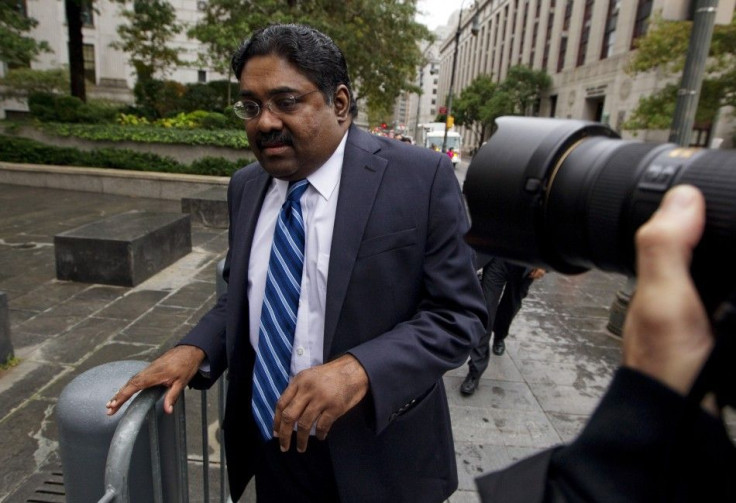Insider Trading: How Did Rajaratnam Get Away With a Lenient Verdict?

Sri Lankan-born Hedge fund tycoon Raj Rajaratnam was sentenced to 11 years in prison for the biggest hedge fund insider trading case in the U.S., but the verdict was not as stringent as legal circles had predicted.
The billionaire manager of the Galleon hedge fund, who was convicted in nine counts of securities fraud and five counts of conspiracy in May, had been expected to get a jail term of at least two decades and a fine of at least $25 million.
His crimes and the scope of his crimes reflect a virus in our business culture that needs to be eradicated, U.S. District Judge Richard J. Holwell said as he announced the 11-year sentence and a $10 million fine.
The court established that Rajaratnam had illegally amassed as much as $50 million through hedge fund insider trading.
However, judge Holwell took into account the 54-year-old's medical condition and his charitable activities while handing a less harsh punishment.
The court took into account the fact that Rajaratnam was an advanced diabetes patient and urgently needed a kidney transplant. Also the judge acknowledged the defendant's responsiveness to and care for the less privileged and noted that he had been active in charitable activities.
The government was hoping to see Mr Rajaratnam go to jail for at least 20 years, but his team of well-paid defence lawyers fought fiercely to reduce the sentence he was handed, apparently to some success, the Economist wrote.
But it pointedly asked if it the lenient verdict in the biggest hedge fund insider trading scandal in the country was a lesson for would-be cons to make it a point to give away much of illicit gains to charity.
The insider trading scandal started when FBI arrested Rajaratnam on Oct. 16, 2009, after unearthing the biggest insider trading scam in Wall Street in two decades.
Prosecutors accused Rajaratnam of reaping as much as $63.8 million illegally by trading on inside tips about companies such as chipmaker Advanced Micro Devices Inc, Intel Corp, Google and Goldman Sachs Group Inc.
After the conviction, Preet Bharara, the U.S. attorney for Manhattan who spearheaded the battle against financial crimes, had said: Raj Rajaratnam, once a high-flying billionaire and hedge fund manager is now a convicted felon, 14 times over. Rajaratnam was among the best and the brightest – one of the most educated, successful and privileged professionals in the country.
Before his arrest, Rajaratnam was on the Forbes’ list of the richest Americans (No. 262) with net worth estimated at $1.8 billion.
The Justice Department had said in May that each of the conspiracy counts against Rajaratnam potentially carried a maximum sentence of five years in prison and a maximum fine of the greater of $250,000 or twice the gross gain or loss from the offense. Each of the securities fraud counts carries a maximum sentence of 20 years in prison and a fine of $5 million. Rajaratnam faces a maximum prison term of 205 years in total.
Before sentencing, the prosecutors pitched for a 19.5-year sentence for Rajaratnam, arguing that he deserved a 25-year sentence under federal sentencing guidelines. However, the defense successfully countered the prosecution, highlighting his health and charity backgrounds and said it would be fair to give him a jail term ranging from 6.5 years to 9 years.
Court documents showed that Rajaratnam had been diagnosed with Type II diabetes in 1992 and that he had been on insulin treatment since 2003. Besides he was also suffering from high blood pressure, high cholesterol and sleep apnea. The court was also informed that Rajaratnam had suffered a “severe cryptogenic stroke” in 2007.
“Based on the information that we have provided there are serious doubts as to whether the Bureau of Prisons can provide the care that he needs ... Any lengthy term of imprisonment will surely shorten his life,” defense lawyer Terence Lynam told the judge.
Rajaratnam could now be sent to a North Carolina prison where he will join the likes of Ponzi scheme operator Bernard Madoff. However, the defense team has said they will appeal the conviction.
© Copyright IBTimes 2025. All rights reserved.





















